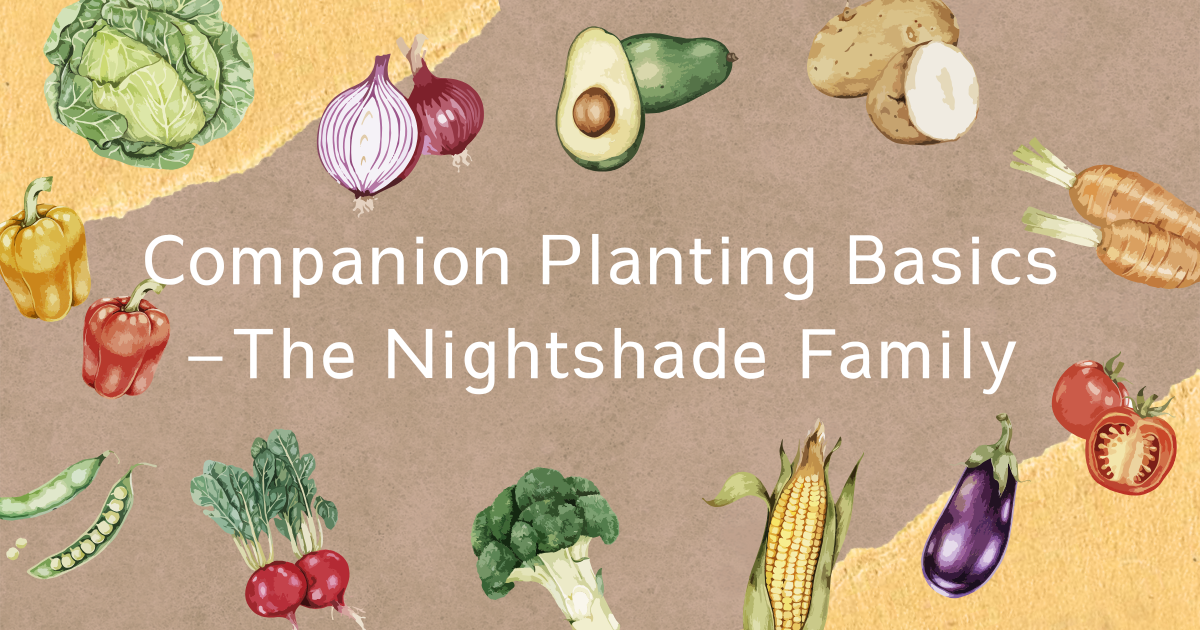Hello everyone,
This is Ka-kun from Nohara Vegetable Garden.
In this post, I’d like to introduce some companion planting combinations that work well with eggplants.
Since eggplants are grown over a long period from summer to fall, they are often affected by diseases and pests.
If companion plants can help reduce that damage—and you get to harvest other vegetables too—that's a win-win!
Let’s dive into the details.
What is Companion Planting?
Companion planting involves growing different types of vegetables close together (interplanting) to achieve mutual benefits, such as:
- Repelling pests (pest deterrence)
- Promoting each other's growth (growth promotion)
- Preventing diseases (disease prevention)
- Efficient use of garden space (space utilization)
The combinations introduced below are expected to provide at least one of these benefits.
Eggplant (Solanaceae) × Parsley (Apiaceae)
First, let's look at the eggplant and parsley combination.
- Parsley's distinctive aroma can help repel pests that typically target eggplants.
- Parsley is sensitive to strong summer sunlight, so planting it in the shade of eggplants can help it thrive.
- Parsley's low-growing, spreading habit can help retain soil moisture and suppress weed growth, similar to the effect of using mulch.
- Interestingly, the presence of eggplants can also reduce the number of pests that usually infest parsley, such as swallowtail butterflies and aphids.
This combination is also effective with bell peppers, another member of the Solanaceae family. However, be cautious when pairing parsley with tomatoes, as parsley may wither when planted near them.
Eggplant (Solanaceae) × Garlic Chives (Allium tuberosum, Amaryllidaceae)
Next, consider the combination of eggplant and garlic chives.
- The aroma of garlic chives can deter pests that target eggplants.
- Garlic chives, like other Allium species, have roots that harbor beneficial bacteria known to produce antibiotics, which can reduce soil-borne pathogens and help prevent diseases.
- This is particularly beneficial for preventing diseases like Verticillium wilt, which commonly affects eggplants.
- This combination can also be applied to other Solanaceae vegetables, such as tomatoes and bell peppers.
To maximize the benefits, ensure that the roots of the garlic chives are planted close to the eggplants, ideally surrounding them on both sides.
Additionally, eggplants (dicotyledons) and garlic chives (monocotyledons) have different nutrient preferences, allowing them to coexist without competing for the same resources.
Conclusion
In this article, we've focused on companion planting combinations for the Solanaceae family.
If you're growing eggplants in your home garden and struggling with pests, or if you have extra space in your planter and want to try growing another plant, consider adding parsley or garlic chives. They can help deter pests, prevent diseases, and increase the variety of vegetables you can harvest.
Thank you for reading.
Ka-kun
Nohara Vegetable Garden

